BENT ON SUCCESS:
JULIA WESTALL WOLFE (1860-1945)
A boarding house owner with a mind for real estate
“The town seemed to be an enormous blueprint to her: her head was stuffed uncannily with figures and estimates- who owned a lot, who sold it, the sale price, the real value, the future value…and so on.”
-Description of Eliza Gant, fictional representation of Julia Westall Wolfe, from Thomas Wolfe’s Look Homeward, Angel.
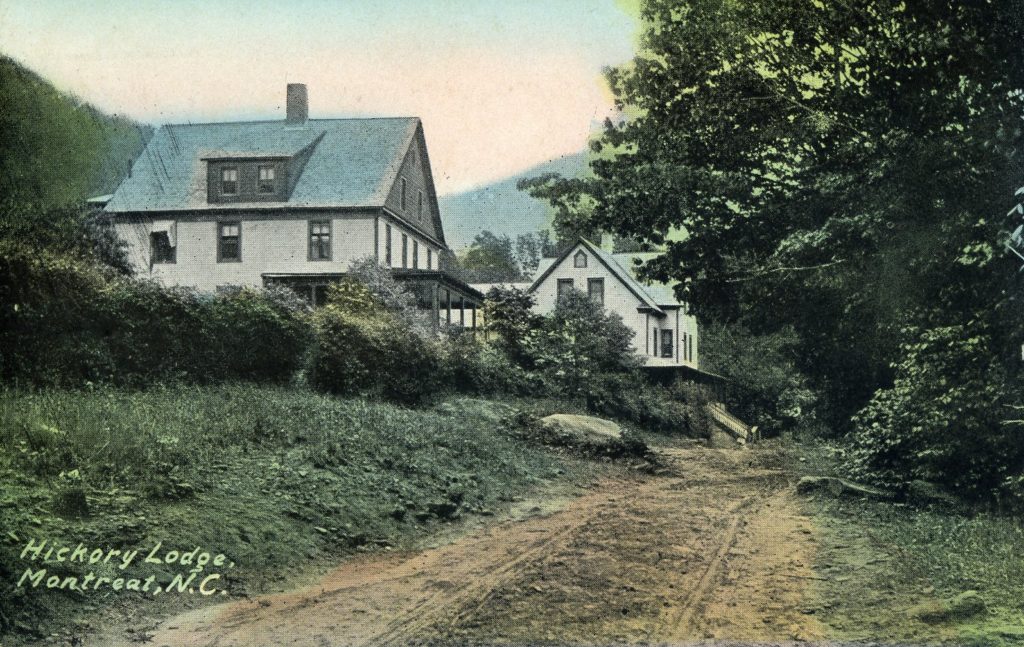
In the early 20th century, boarding houses dotted the landscape of the Swannanoa Valley. Much less expensive than resort hotels, and often providing a family atmosphere, boarding houses served as affordable forms of overnight and short-term lodging for tourists, seasonal workers, teachers, salesmen, and touring entertainers. Running a boarding house was one of the only acceptable occupations for women, and unmarried women or widows often chose to run boarding houses as a form of income. Julia Wolfe, born in the Swannanoa Valley, would run a boarding house for nearly four decades.
Left: The Hickory Lodge, a boarding house in Montreat, ca 1910.
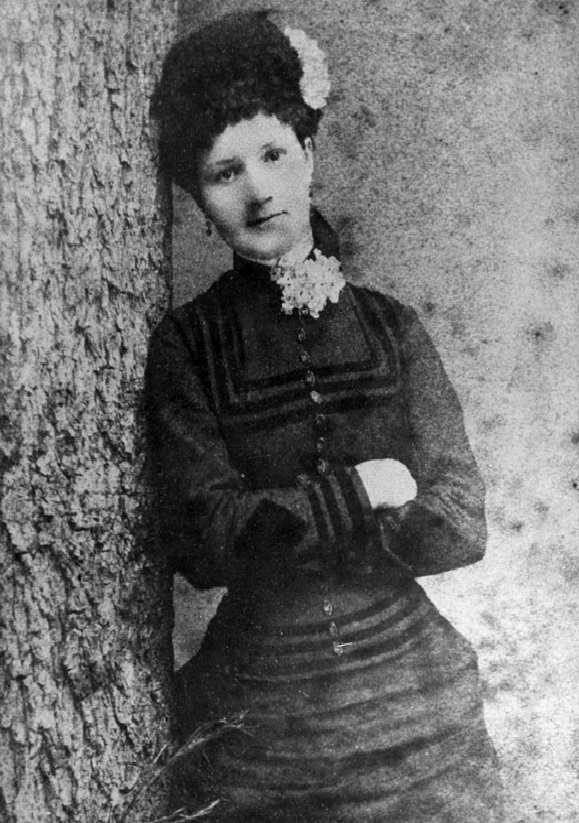
Julia Elizabeth Westall was born on February 16th, 1860, on a farm near Swannanoa. She was the fourth of 11 children born to Martha Anne Penland and Thomas Casey Westall. Julia grew up in the crushing poverty of the post-Civil War economy, and her challenging childhood likely motivated her to become financially independent as an adult.
Right: Julia at the age of 24. Courtesy of the Thomas Wolfe Memorial.
“…we [the Westall family] didn’t meet…except at weddings and funerals. The reason was that we were so busy- none of us wanted to be poor. We didn’t want our children to be poor like we were.”
-Julia Westall Wolfe
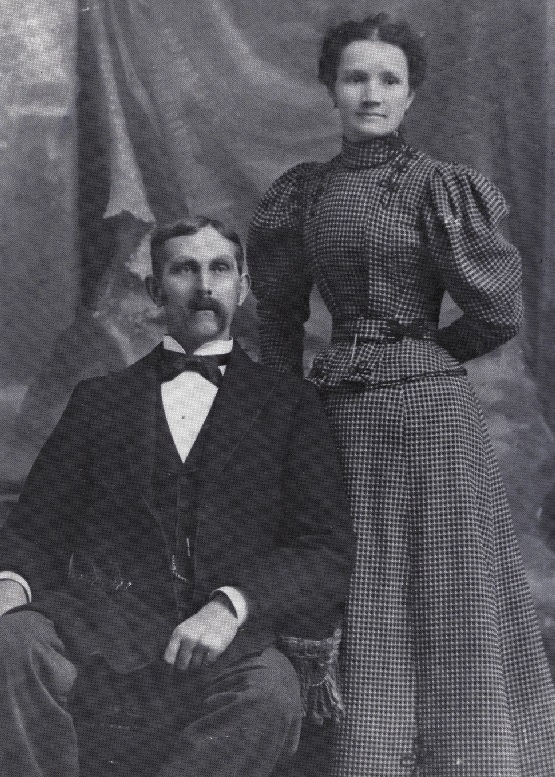
Julia married William Oliver (or “W.O.”) Wolfe in 1885. From this union, Julia would eventually give birth to eight children. However, neither marriage nor motherhood distracted Julia from her steadfast interest in becoming financially successful. In the early 20th century, Asheville and the Swannanoa Valley were increasingly prominent places to visit for health and recreation, and Julia recognized the financial potential of running her own boarding house. In 1906 she purchased the “Old Kentucky Home” boarding house in downtown Asheville for $6,500 dollars.
Left: Julia and W.O. Wolfe, 1900. Courtesy of the Thomas Wolfe Memorial.
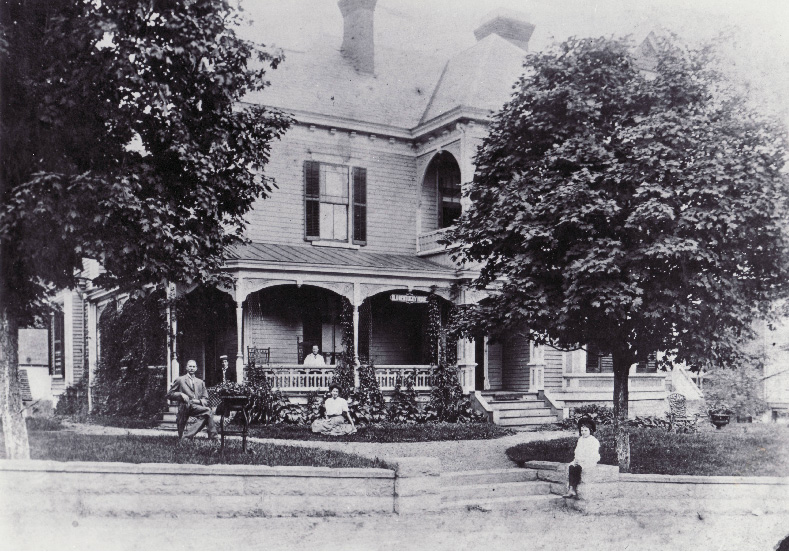
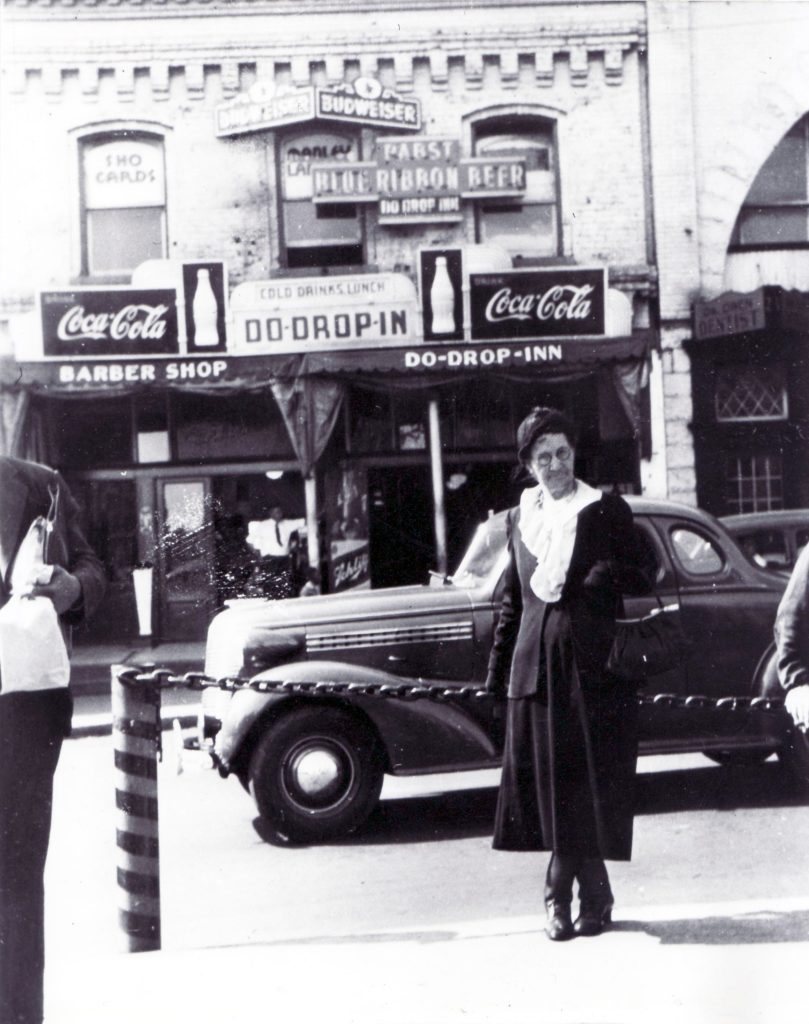
The Old Kentucky Home was patronized by tourists, transient workers, and traveling salesmen who typically paid Julia a dollar a day for breakfast, supper, and a bed. Julia often worked as many as 19 hours a day to meet the needs of all of her patrons. Seeking additional sources of income, she used her profits from the boarding house to buy, develop, and sell properties in Asheville and Florida. Julia’s talents in business led to her family’s relative affluence. She operated the Old Kentucky Home for 39 years until her death.
Left: Julia in downtown Asheville in the summer of 1942. Photo courtesy of Thomas Wolfe Memorial.
Julia’s hard labor as a boarding house owner was typical of the long hours women entrepreneurs invested in order to make their boarding houses a stable source of income. Click below to read about some of the women who ran hotels, inns, and boarding houses in the Swannanoa Valley.
Ann Van Meter and Eliza “Lyde” Cummings Wilson
Born in West Virginia in 1869 and 1880 respectively, Ann Van Meter and Eliza “Lyde” Cummings Wilson lost their mother, Elizabeth Gibson Wilson, to heart disease in 1884, when she was only 49 years old. In 1906, Ann and Lyde’s father, Major John Park Wilson, a former Confederate solider, moved to Black Mountain with his two unmarried daughters. Major Wilson’s 1922 obituary in the Asheville Citizen reported that his home “became a sort of community center for social and literary activities.
The sisters’ home of Pen-y-Bryn (“top of the hill” in Welsh), was located on a hillside off Lakey Gap Road – about a mile south of downtown Black Mountain. After their father’s death, Ann and Lyde began welcoming summer boarders to their large self-sustaining farm. In 1926, ads ran in newspapers as far away as Alabama advertising rates of $15-$20 a week. The sisters continued operating their home as a boarding house through at least the 1930s.
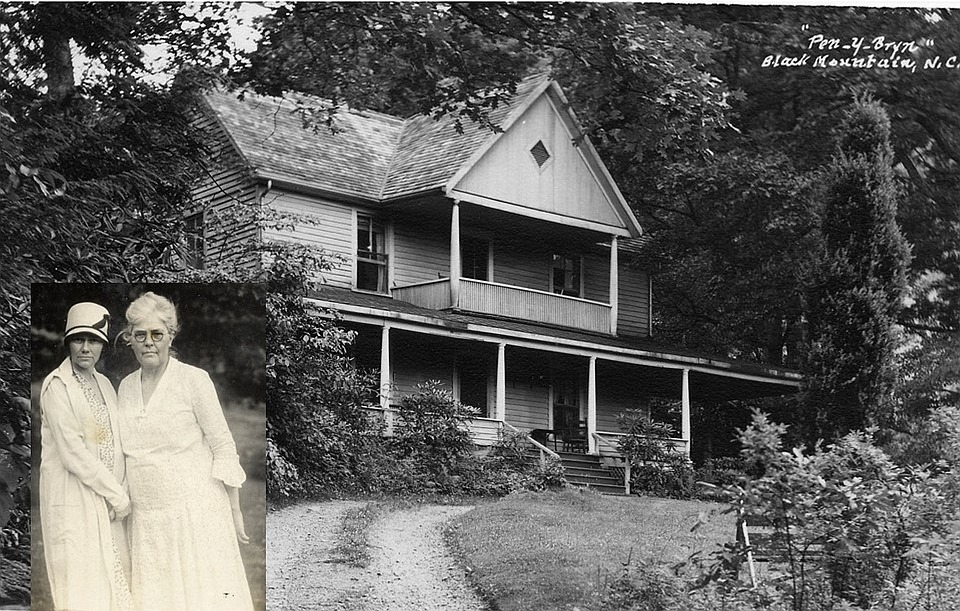
Rosalie Phillips
In 1920, Lucien Emmett and Rosalie Jumper Phillips began operating the Monte Vista Hotel out of a wood-frame building which boasted steam heat, private baths, and no sick accepted. In 1936, they decided to borrow money to build a new three-story building just to the west of the present hotel building. The new Monte Vista Manor opened to guests Thursday, August 5, 1937, having been completed just a week earlier. The new building, which still stands and operates as the Monte Vista Hotel today, contained 30 guest rooms and 28 baths on the 2nd and 3rd floors of the building with a large lobby and dining room on the first floor and a recreation room with a billiard table in the basement. The wooden building was eventually torn down.
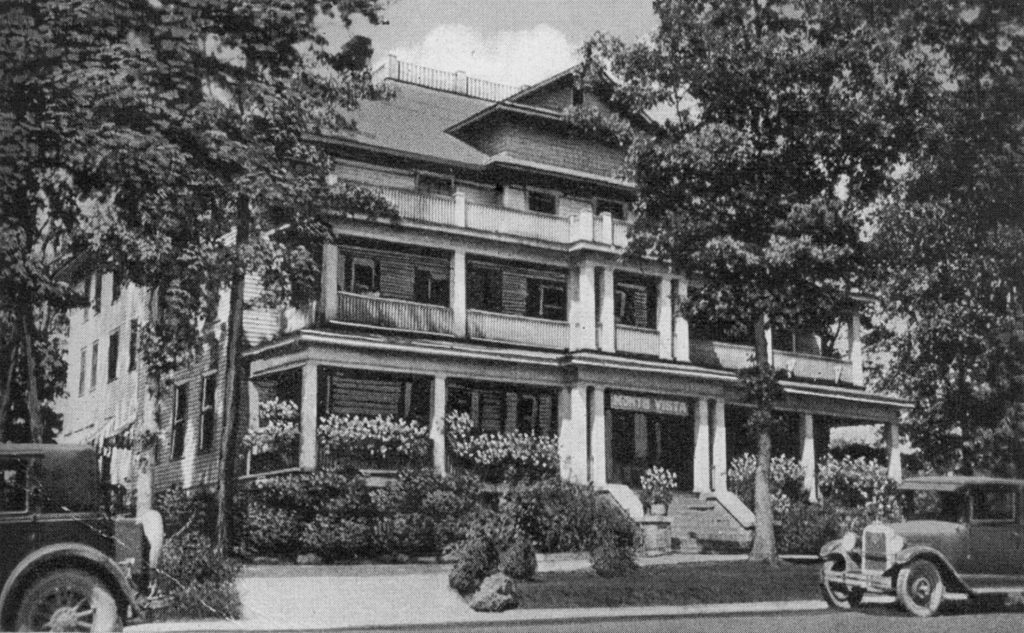
Carrie Davidson Alexander
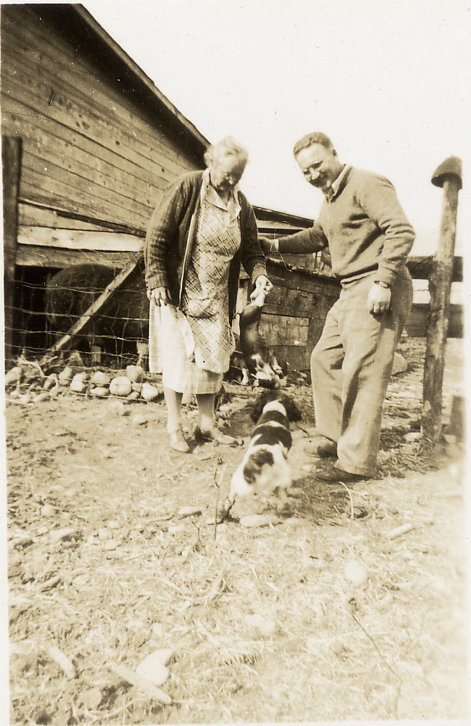
Carrie Cornelius Davidson ran the Alexander Inn of Swannanoa alongside her husband Rufus Davidson Alexander, until his death in 1918. The Alexander Inn had been in the Alexander family since it was built by George Couples Alexander in 1818, and Carrie took up care of the establishment after her husband’s death.
Though short in stature, Carrie Davidson Alexander was a shrewd businesswoman determined to send her children to college. When a man named E.W. Grove came to Swannanoa looking for a tract of land on which to build America’s first planned community, Carrie haggled with him for months until she got the price she wanted for 275 acres of Alexander property that would become Grovemont-on-Swannanoa.
The inn continued to host guests without interruption until 1949, when Carrie passed away. The original inn, listed on the National Register of Historic Places, still stands on Old US 70 as the oldest continuously lived in structure by the same family in Buncombe County.
Left: Carrie Alexander with her son “Spec” Alexander.
Callie Crawford
Callie Watkins Crawford ran Crawford Hall, a boarding house, which was the first in Black Mountain to operate 12 months of the year. It was originally built as an annex to the Crawford family’s home and contained 11 guest rooms. It closed in 1927.
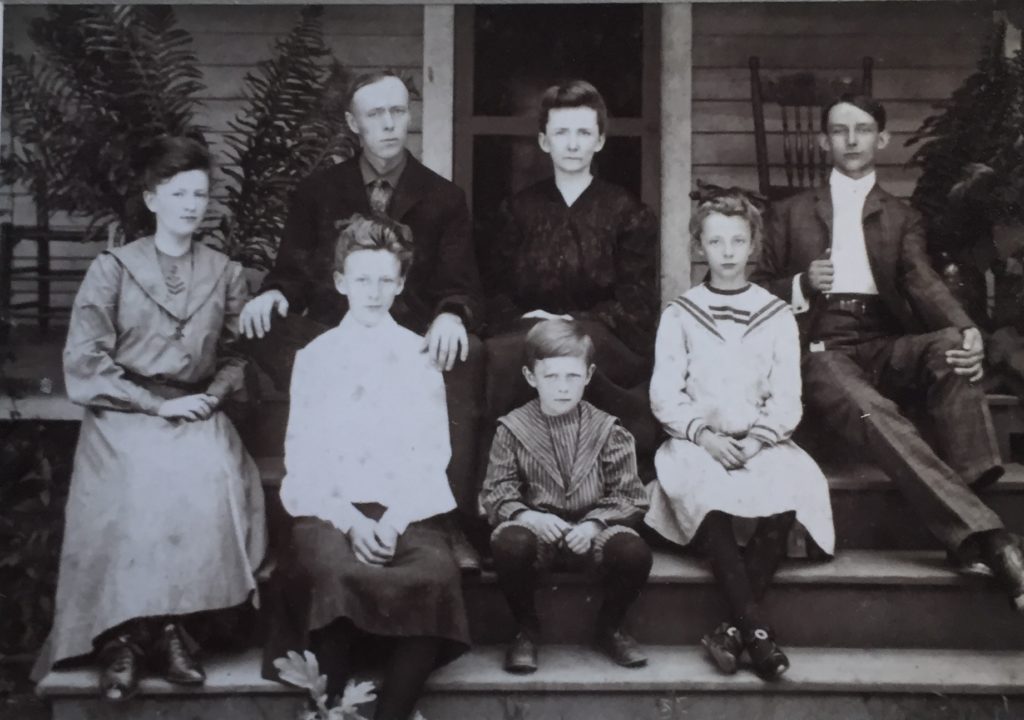
Gertrude Sprague
Gertrude Sprague managed the several hotels and inns in the Swannanoa Valley including the Black Mountain Hotel and the Lake Eden Inn. Built in 1882, the Black Mountain Hotel once stood along the north side of the railroad tracks in downtown Black Mountain.
An 1885 news article in the Asheville Citizen reported of the hotel, “The table will be always supplied with the best the country affords, and the comfort of the guests will be constantly attended to by a corps of thoroughly trained servants.” This early hotel, the first in town, burned in 1903. The Charlotte News reported on the fire. “The entire absence of any fire apparatus rendered it impossible to cope with the flames, so the by-standers addressed themselves to the task of saving the contents of the doomed building.”
Gertrude Sprague was also the manager of the hotel at the time. She was severely burned when she fell while trying to escape the flames, but survived. A new hotel – The Gladstone – was built in its place a few years later.
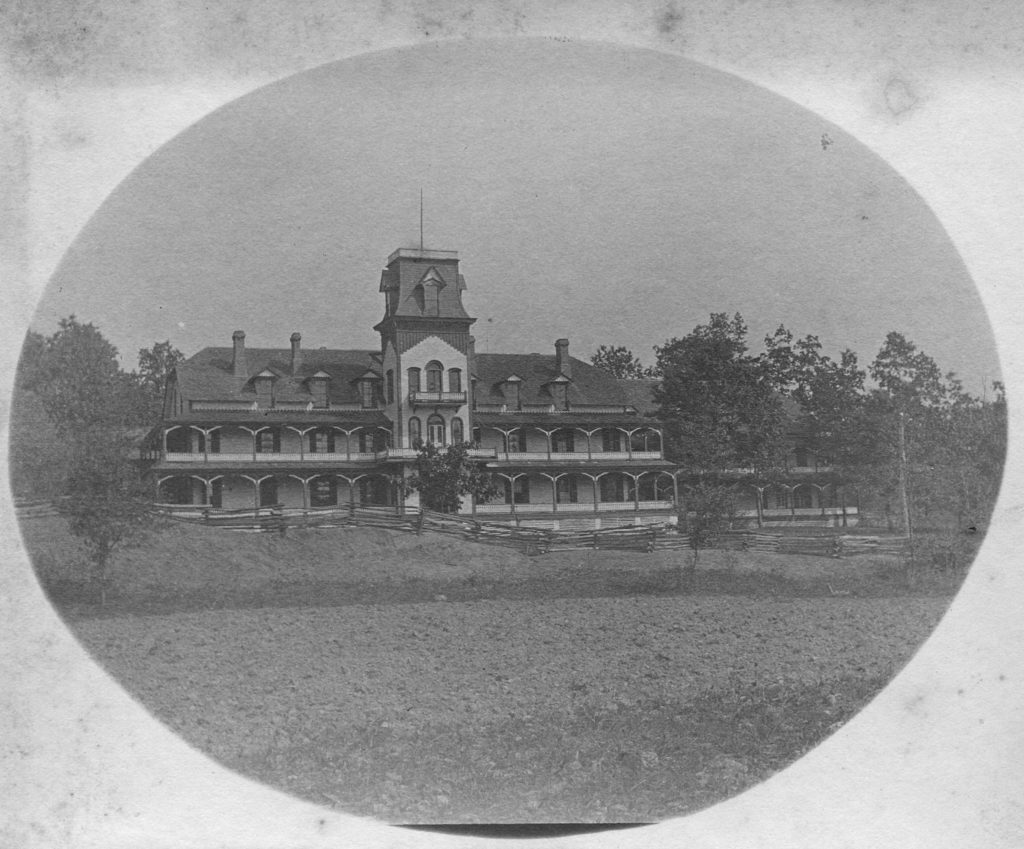
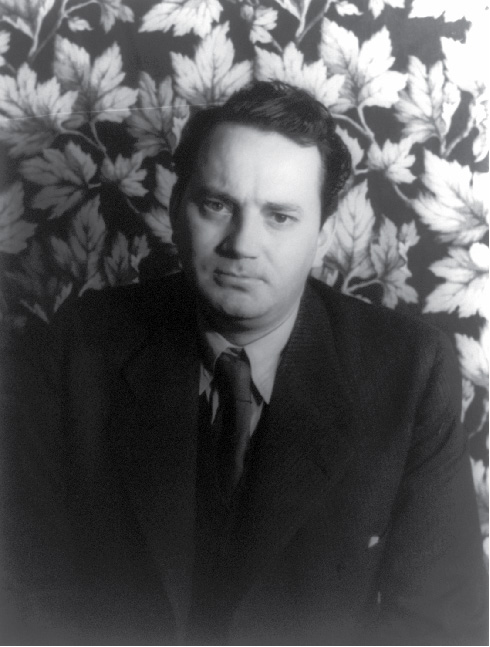
Julia’s Youngest Son: Thomas Wolfe (1900-1938)
Shortly after Julia purchased the Old Kentucky Home, she moved into the boarding house full time while W.O. and most of her children remained in the family home a few blocks away. However, Julia took her youngest son, six-year-old Thomas, with her. Tom would spend much of his childhood hauling coal to the boarder’s rooms, weeding his mother’s garden, and doing other chores to support his mother’s business.
As an adult, Tom pursued a career in play writing and literature. His debut novel Look Homeward, Angel, published in October 1929, was semi-autobiographical and depicted the Old Kentucky home as well as Julia. Look Homeward, Angel was an international success, launching Tom on a prolific, if tragically short, career. After his death from tubercular meningitis in 1938, Julia would go on to promote his plays and novels, and often indulged sight-seers in tours of the Old Kentucky Home.
Left: Photo of Thomas Wolfe courtesy Library of Congress, Prints & Photographs Division, Carl Van Vechten Collection, [reproduction number, e.g., LC-USZ62-54231]
In 1945, while on a trip in California, Julia happened to be the oldest person in the audience of a broadcast of the radio show Breakfast in Hollywood, hosted by Tom Breneman. She was asked onto the stage, and had a conversation with Breneman about Asheville, her stay in California, her children, and her late son Thomas Wolfe. Breneman invited Julia to dine at his restaurant in Hollywood. Listen below.